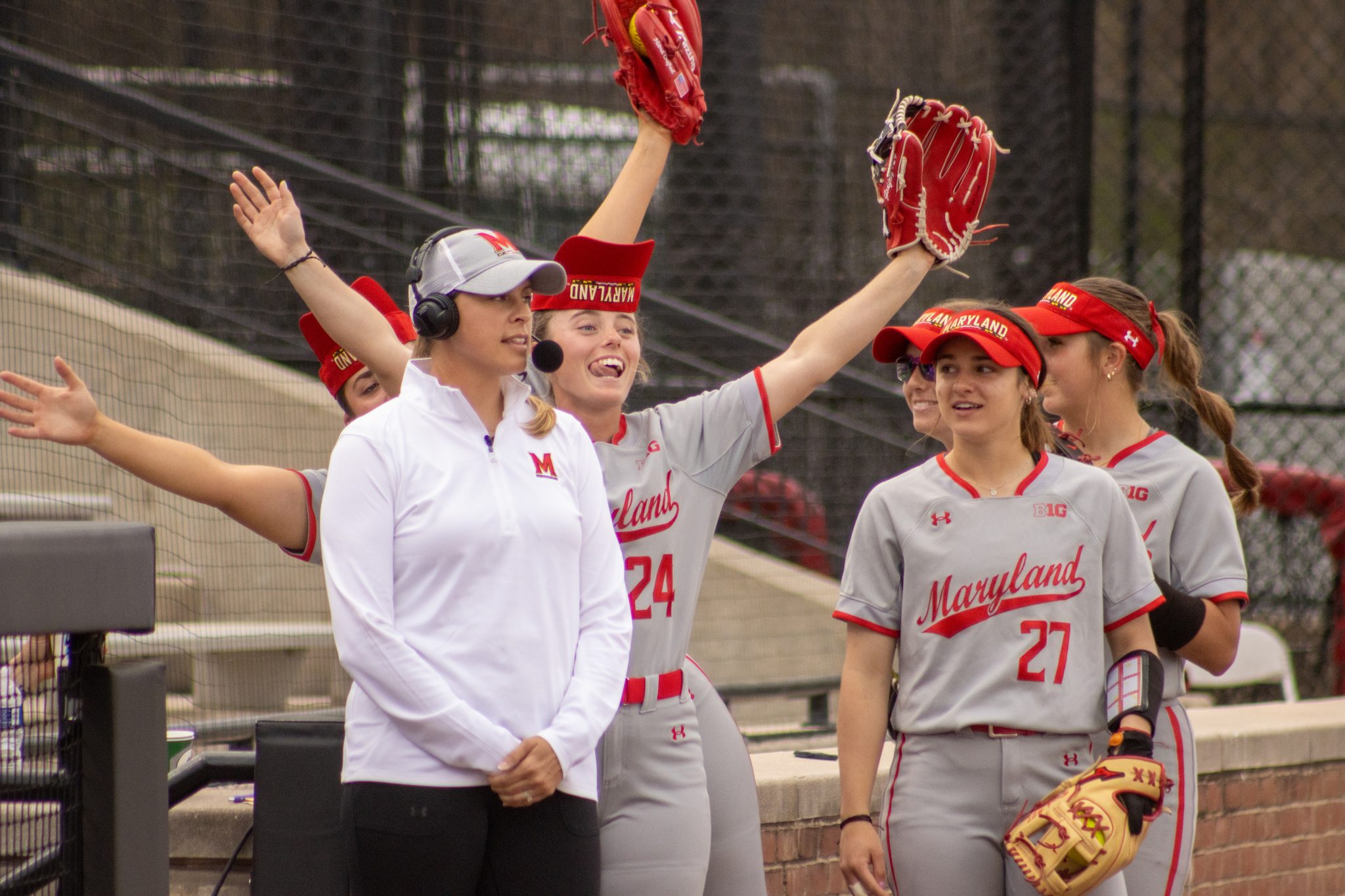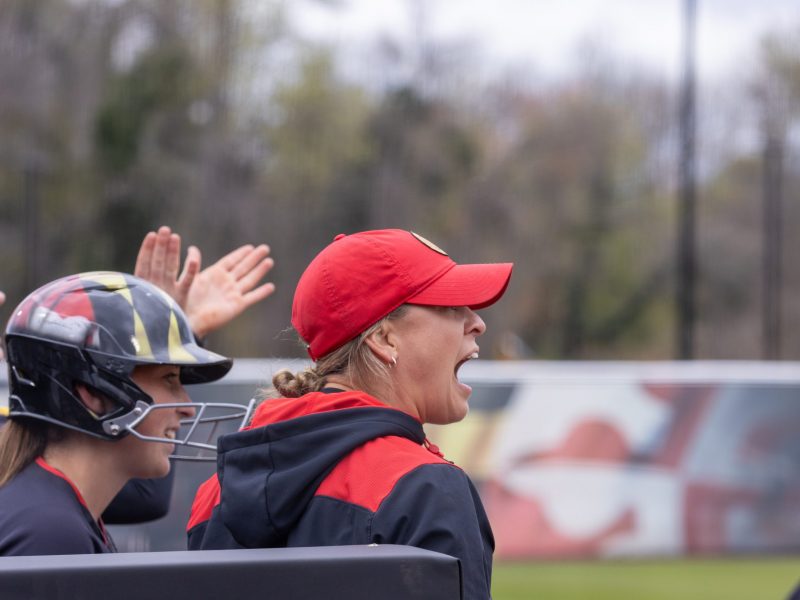Lauren Karn looked down at her practice plan ahead of conference play and had two words highlighted: “positivity day.”
The Maryland softball coach noticed her team struggled to cheer loud enough, support each other and went silent after errors. Karn and her staff knew they needed to do something. She introduced her idea to create a positive response to failure and an encouraging atmosphere for the team. The key was simple — practice high-fiving.
“We all kind of looked at each other and were like, ‘What’s going on right now?’” freshman pitcher and outfielder Julia Shearer said. “But as we moved through the drill, it was goofy and fun.”
Karn lined up all the pitchers in the bullpen. She put one pitcher in the circle and a catcher behind the plate. The pitchers got one pitch — if they executed it properly, all was good. If they didn’t, everyone had to run to that person and give them a high-five.
Soon it turned into high-fives after every pitch. Karn said it created a much-needed positive space that excited many players. She also said the pitchers improved their consistency as the teammates built up each other’s confidence.
Karn transitioned the drill onto the field. Any error stopped the practice, which wouldn’t resume until each player ran from their position and high-fived their teammate.
[Maryland softball continues conference struggles in 4-0 defeat to Ohio State]
It was an unlikely lesson and may seem elementary for Big Ten athletes, but Karn thought it was crucial to fix the team culture. She noticed that the successes and failures were very individualized and wanted the players to learn to celebrate each other. Karn said it wasn’t something the team was used to, especially returning players.
“Instead of the focus being finding solutions to mistakes that the team was making… I think they were just kind of in a numb space,” Karn said. “They made a mistake, they’re gonna get yelled at, and so [they would] just take it and move on.”
Anyone who fears their own failure is afraid of an external reaction, according to Karn. She talked about wanting a positive response to failure throughout the season on her first day of practice. The high-five exercise proved to be helpful.
In the first set of games after the “positivity day,” the team had a rule to give each batter a high-five. The players obliged, but in the next set of games, Karn wanted to see how the players would adjust unprompted.
The coach stood at the end of the dugout and watched the first batter strikeout. Gracelyn Solarz popped off her step in the dugout to embrace her teammate. She glanced around and didn’t see any of her teammates do the same, so she peeked back at Karn.
[Maryland softball wants to be less reliant on Courtney Wyche]
“Go ahead. You don’t need my permission to support your teammates,” Karn recalled saying. “And then after that, the more that she did it, her team started following her and now it’s just kind of a regular thing that they do.”
The team changed their verbal approach to positivity as well.
Maryland played Rutgers in College Park a few weeks after the practice. Sydney Lewis was behind Diamond Williams in the lineup and practiced her swing while watching Williams from the on-deck circle.
Lewis yelled out words of encouragement to the batter while jumping up and down, getting more riled up as she continued to cheer Williams on. She inched closer to Williams until the umpire stepped in, pointing to the ground and telling her to move farther away.
Lewis forgot where she was, as the positivity Karn preached became instilled in her players.Cheering on teammates was no longer a coach’s rule, but a choice the players were consciously making.
“Even though it’s a little thing that she kind of put in place for us, it keeps the positive energy up instead of the whole team kind of deflating after one bad play,” Shearer said. “I think it’s really changed our mindsets about failure and lets other people know that the team has their back and is there to pick them up.”



